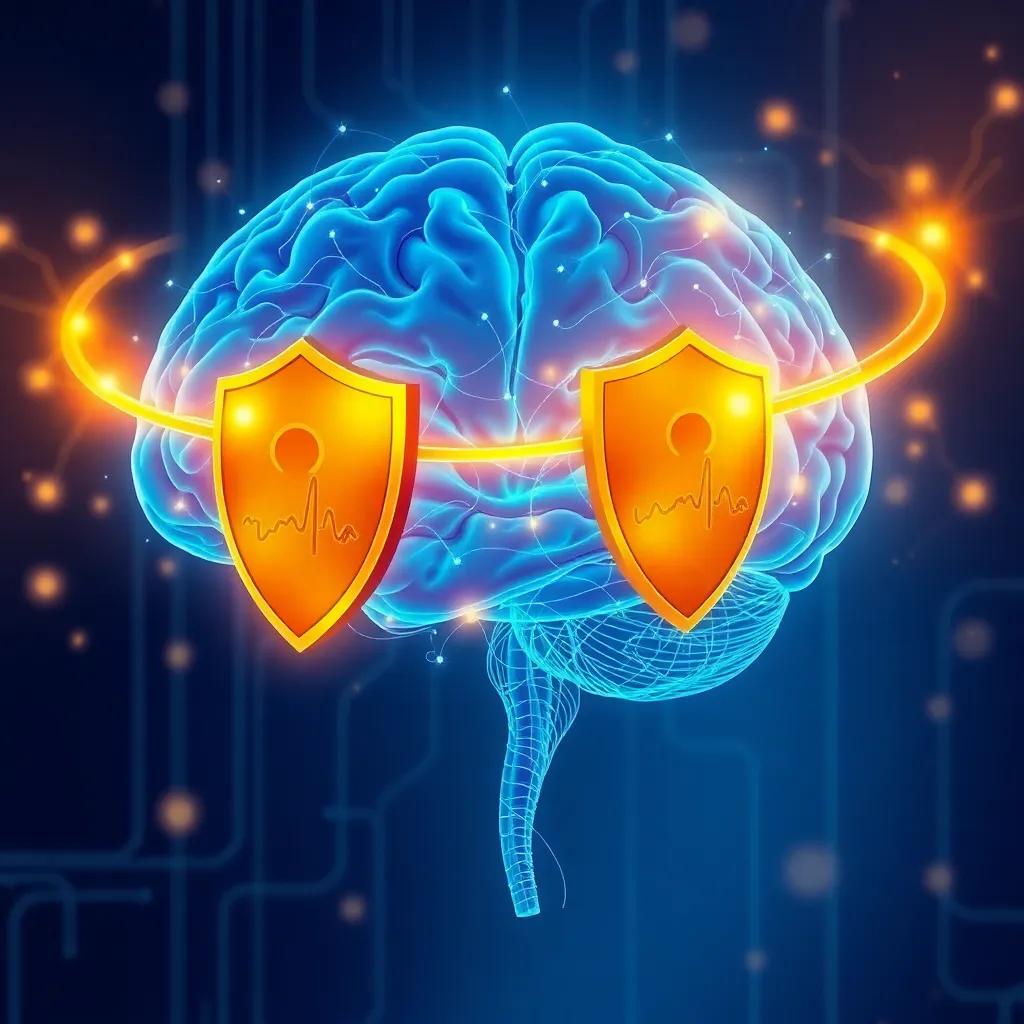NeuroShield’s encrypted AI achieves 98.73% diagnostic accuracy while protecting patient data, responding to recent NHS breach affecting 2.6 million records.
Advanced AI systems now deliver both superior diagnostics and uncompromising data protection following major healthcare breaches.
The Breach That Changed Everything
The September 12, 2025 NHS cyberattack that compromised 2.6 million patient records served as a wake-up call for healthcare systems worldwide. Dr. Anika Sharma, cybersecurity director at Johns Hopkins Medicine, stated: ‘This wasn’t just another data breach—it was a fundamental exposure of how vulnerable our healthcare infrastructure remains. The incident accelerated what was already an urgent shift toward privacy-enhanced AI systems.’
NeuroShield’s architecture represents the cutting edge of this transformation. The system combines transformer-based neural networks with homomorphic encryption, enabling real-time analytics on fully encrypted patient data. Unlike traditional systems that decrypt information for processing, NeuroShield maintains encryption throughout the entire analytical process.
Technical Breakthroughs in Medical AI
The system’s 98.73% diagnostic accuracy, validated across 14 medical institutions, demonstrates that security enhancements don’t compromise performance. Professor Michael Chen, lead researcher at Stanford’s AI Healthcare Lab, explained: ‘What makes NeuroShield remarkable isn’t just its accuracy metrics—it’s that it achieves this while implementing three-layer security: AES-256 encryption for data at rest, differential privacy for aggregated analytics, and explainable AI components that let clinicians understand how decisions are made.’
Recent research by Durai et al. (2025) published in Nature Digital Medicine highlights why this multi-layered approach is essential. Their study identified 47 new vulnerability patterns in healthcare AI systems, concluding that ‘single-layer security models are fundamentally inadequate for protecting sensitive health data against evolving cyber threats.’
Regulatory Momentum and Global Response
The timing of these technological advances coincides with significant regulatory changes. The EU AI Act’s healthcare provisions became enforceable on September 10, 2025, requiring explainable AI and encryption for medical diagnostics. Just five days later, the WHO released new AI ethics guidelines mandating privacy-by-design in all healthcare AI deployments globally.
Dr. Elena Rodriguez, WHO’s digital health lead, announced during the September 15 guidelines release: ‘Privacy-preserving technologies are no longer optional additions—they are mandatory components of ethical healthcare AI. Systems must be designed from the ground up to protect patient confidentiality while delivering clinical value.’
This regulatory momentum is driving rapid adoption. Google Health and Mayo Clinic announced their partnership on September 14 to implement federated learning systems protecting patient data across 300 hospitals. The approach allows AI training without moving sensitive data between institutions, addressing both privacy concerns and data sovereignty issues.
The Business Case for Secure AI
Beyond compliance, healthcare institutions are discovering that privacy capabilities serve as competitive advantages. Hospitals implementing NeuroShield and similar systems report increased patient trust and participation in data-sharing programs. ‘Patients are increasingly aware of data risks,’ noted Sarah Wilkinson, CEO of NHS Digital. ‘When they understand their information remains encrypted even during analysis, they’re more willing to contribute to the datasets that improve AI accuracy for everyone.’
The business impact extends beyond patient trust. Research institutions find that robust privacy protections facilitate cross-institutional collaborations previously hampered by data governance concerns. ‘We’re now able to collaborate with international partners who previously hesitated due to data protection regulations,’ said Dr. James Mitchell at Cambridge University’s Medical AI Research Center.
Looking Forward: The New Healthcare AI Landscape
The emergence of privacy-enhanced AI systems represents more than technological progress—it signals a fundamental shift in how healthcare organizations approach data strategy. Rather than viewing security as a compliance cost, leading institutions are leveraging their privacy capabilities as market differentiators.
As MIT researchers demonstrated in their September 11 study on side-channel attacks, the threat landscape continues evolving. Their research showed how sophisticated attackers can bypass traditional encryption methods by analyzing patterns in system behavior rather than attacking encryption directly. This underscores the need for the multi-layered approach that systems like NeuroShield provide.
The convergence of recent cyberattacks, regulatory changes, and technological breakthroughs has created a perfect storm accelerating adoption of privacy-enhanced AI. What began as niche research interest has rapidly become mainstream necessity.
The transition toward encrypted AI analytics reflects broader patterns in digital health evolution. Similar to how electronic health records evolved from simple digitization projects to comprehensive patient management systems, AI security is maturing from add-on feature to core capability. This pattern mirrors the earlier adoption of encryption in financial services, where security transformed from compliance requirement to customer trust foundation.
Historical context reveals that healthcare often follows other industries in security adoption but eventually surpasses them in sophistication due to the sensitive nature of medical data. The current shift toward privacy-enhanced AI continues this pattern, building on lessons from financial technology while addressing healthcare’s unique requirements for both privacy and clinical utility. As regulatory frameworks solidify and patient awareness grows, systems balancing advanced analytics with robust protection will likely become the standard rather than the exception in medical AI deployment.

